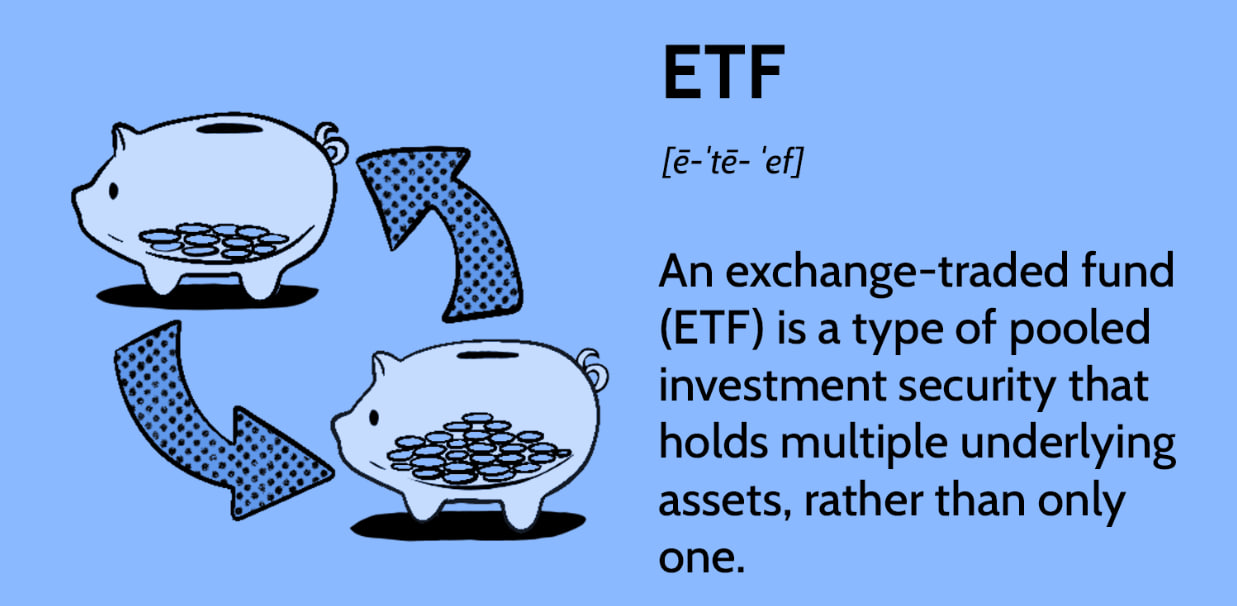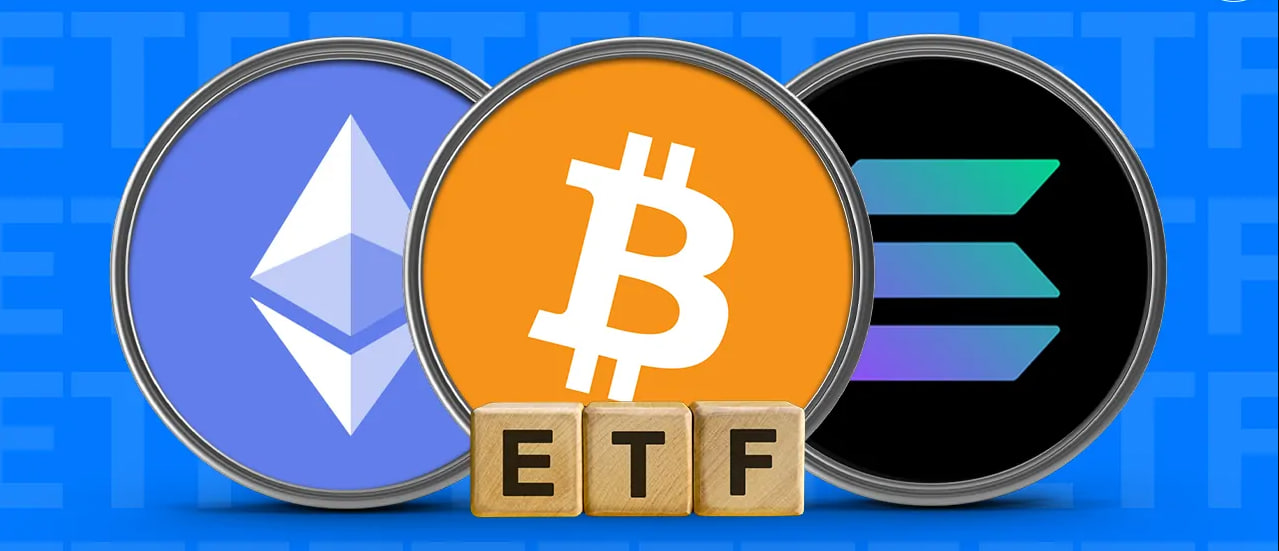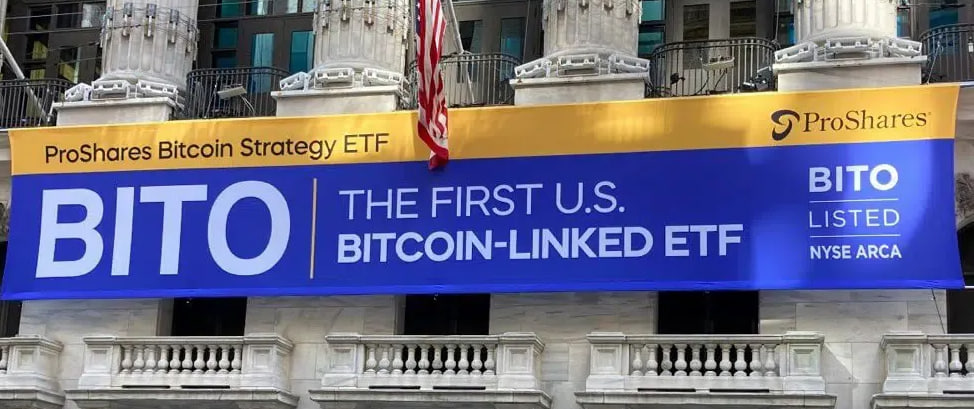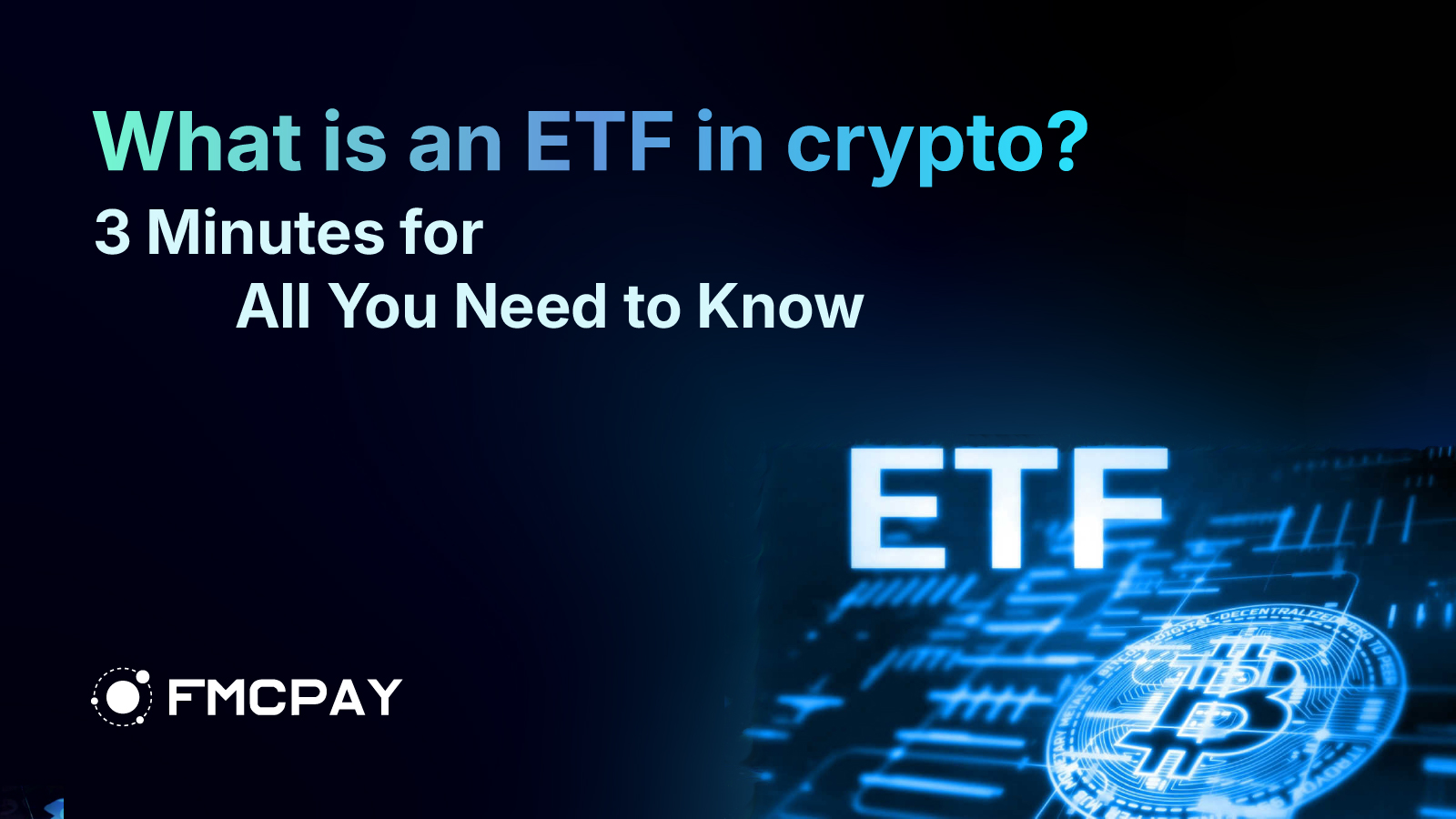If you’ve been keeping up with crypto and Bitcoin news for a while, you’ve likely come across the term “ETF” (exchange-traded fund). But what is an ETF exactly? This article explores the concept of ETFs, their role in the crypto market, the different types available, and what they mean for investors. Now let’s begin!
1. What is an ETF?
An ETF (Exchange-Traded Fund) is a financial product that pools various assets, such as stocks, bonds, or commodities, into a single fund. Investors can buy shares of the fund, which trade on stock exchanges like individual stocks, offering exposure to a diversified portfolio without purchasing each asset separately.
A key advantage of ETFs is their ability to provide instant diversification. Instead of selecting multiple stocks or commodities individually, an investor can buy an ETF that tracks a broad index, sector, or asset class. This makes ETFs a popular choice for both beginners and seasoned investors seeking to balance risk and reward efficiently.
Another important aspect of ETFs is their trading flexibility. Unlike mutual funds, which are priced only at the end of the trading day, ETFs can be bought and sold throughout the day at market prices. This liquidity allows investors to react quickly to market changes.
Additionally, ETFs often have lower expense ratios compared to actively managed funds, making them a cost-effective investment option.

Governments regulate ETFs to ensure transparency and investor protection. Most ETFs disclose their holdings daily, so investors always know what assets are in the fund. This structure enhances trust and allows for more informed investment decisions.
In summary, what is an ETF? It is a market-traded investment fund that provides diversification, liquidity, and cost efficiency, making it a versatile tool for investors looking to gain exposure to different asset classes with minimal effort.
2. What is an ETF in Crypto?
A crypto ETF is a specialized type of exchange-traded fund designed to track the performance of cryptocurrencies or blockchain-related assets. To understand what is an ETF in the crypto context, we need to look at how it functions within traditional financial markets while offering exposure to digital assets.
Instead of buying and holding cryptocurrencies directly, investors can purchase shares of a crypto ETF, which trades on regulated stock exchanges. This makes investing in cryptocurrencies more accessible to individuals who may not be comfortable handling private keys, digital wallets, or navigating crypto exchanges. By using an ETF structure, investors can participate in the growth of the crypto market without directly owning the assets.
There are different types of crypto ETFs. Some hold actual cryptocurrencies, such as Bitcoin or Ethereum, while others invest in futures contracts that speculate on crypto price movements. Additionally, thematic ETFs focus on blockchain-related companies, allowing investors to gain exposure to the industry without holding digital currencies.

The benefits of a crypto ETF include regulatory oversight, ease of trading, and tax efficiency. Unlike direct crypto ownership, where investors must manage security risks and custody issues, an ETF provides a simpler way to invest through traditional brokerage accounts. Moreover, these funds are regulated, reducing the risks associated with unregulated crypto exchanges.
In short, what is an ETF in crypto? It is an investment fund that allows traditional investors to gain exposure to cryptocurrencies in a secure, regulated, and convenient way. As the market evolves, crypto ETFs are expected to play an even larger role in bridging the gap between traditional finance and the digital asset economy.
3. Types of Crypto ETFs
As the cryptocurrency market matures, different types of ETFs have emerged to meet the needs of investors. You may know the answer to “what is an ETF in crypto”, but do you understand does each type functions? Below are the main types of crypto ETFs, along with real examples.
3.1. Spot Crypto ETFs – Directly Backed by Actual Cryptocurrencies
Spot crypto ETFs invest directly in cryptocurrencies, holding the actual digital assets within the fund. The value of these ETFs mirrors the real-time price movements of the underlying cryptocurrencies. For instance, a spot Bitcoin ETF would hold Bitcoin, and its share price would fluctuate in tandem with Bitcoin’s market price.
This direct backing offers investors a transparent and straightforward way to gain exposure to specific cryptocurrencies without the need to manage the assets themselves. Spot crypto ETFs are particularly appealing to those seeking a pure play on the price movements of digital currencies.

Notable Examples:
- Grayscale Bitcoin Trust (GBTC) – Now a Spot Bitcoin ETF: Originally structured as a trust, GBTC converted into a spot Bitcoin ETF in 2024 after SEC approval. It directly holds Bitcoin, allowing investors to gain exposure to BTC without buying and storing it themselves.
- iShares Bitcoin Trust (IBIT) – BlackRock’s Bitcoin ETF: Launched in early 2024, this ETF allows traditional investors to trade Bitcoin through standard brokerage accounts, avoiding the complexities of crypto exchanges.
3.2. Futures Crypto ETFs – Based on Futures Contracts Rather Than Real Assets
Futures crypto ETFs do not hold actual cryptocurrencies; instead, they invest in futures contracts that speculate on the future price of digital assets. While futures ETFs provide exposure to the crypto market, they may experience price discrepancies due to factors like contango and backwardation, where the futures prices deviate from spot prices.
Additionally, the rolling over of contracts can incur costs, potentially impacting overall returns. Investors in futures crypto ETFs should be aware of these nuances and consider how they align with their investment strategies.

Notable Examples:
- ProShares Bitcoin Strategy ETF (BITO): Launched in October 2021, BITO was the first U.S.-approved Bitcoin futures ETF. Instead of holding Bitcoin, it invests in Bitcoin futures contracts traded on the Chicago Mercantile Exchange (CME).
- Valkyrie Bitcoin Strategy ETF (BTF): This ETF also follows Bitcoin futures contracts and allows investors to speculate on Bitcoin’s future price movements without directly owning BTC.
3.3. Thematic or Mixed ETFs – Include Blockchain-Related Stocks and Digital Assets
Thematic or mixed crypto ETFs invest in a combination of assets related to the cryptocurrency and blockchain industry. These may include shares of companies involved in blockchain technology, cryptocurrency mining, or firms holding substantial crypto assets.
This type of ETF offers diversified exposure not only to cryptocurrencies but also to the broader ecosystem supporting the digital asset market. Investors interested in the overall growth of blockchain technology and its applications may find thematic ETFs aligned with their investment goals.

Notable Examples:
- Amplify Transformational Data Sharing ETF (BLOK): This actively managed ETF invests in companies that develop blockchain technology, including firms like Coinbase, Nvidia, and Square.
- Global X Blockchain ETF (BKCH): This ETF holds stocks of companies involved in blockchain technology, including Bitcoin mining firms like Riot Blockchain and Marathon Digital.
4. Benefits of Crypto ETFs
As the demand for digital assets grows, investors are increasingly looking for safer and more accessible ways to enter the crypto market. Understanding what is an ETF in the context of cryptocurrencies reveals several advantages, making it an attractive option for both retail and institutional investors.
Accessibility and Convenience
Investing in cryptocurrencies directly requires setting up wallets, securing private keys, and navigating crypto exchanges. With a crypto ETF, investors can gain exposure to digital assets using a traditional brokerage account. This eliminates the need for technical expertise while providing a regulated investment avenue.
Reduced Security Risks
One of the biggest concerns for crypto investors is security. Hacks, lost private keys, and exchange failures have resulted in significant losses over the years. A crypto ETF removes the burden of self-custody, as fund managers handle asset security on behalf of investors.
Regulatory Oversight and Transparency
For those wondering what is an ETF, it’s a highly regulated financial product that offers a safer way to invest in digital assets. Unlike direct crypto investments, ETFs operate under strict financial regulations. This ensures transparency, regular audits, and compliance with industry standards, reducing the risk of fraud or manipulation.
Diversification Opportunities
Crypto ETFs can track not only individual cryptocurrencies but also a basket of assets, including blockchain stocks and mining companies. This diversification helps mitigate risk and provides broader exposure to the industry.
5. Risks & Considerations
While crypto ETFs offer numerous benefits, they are not without risks. Investors should consider several factors before investing, as understanding what is an ETF is crucial to managing expectations and potential pitfalls.

Market Volatility
Cryptocurrencies are known for their extreme price fluctuations. Although ETFs provide a regulated way to invest, they do not eliminate volatility risks. The value of crypto ETFs can experience sharp declines based on market trends.
Tracking Errors and Performance Differences
Spot ETFs closely follow the price of their underlying cryptocurrencies, but futures-based ETFs may experience tracking errors. This means the ETF’s performance may not always perfectly mirror the actual price movements of digital assets.
Regulatory Uncertainty
Despite increasing adoption, regulatory frameworks for crypto ETFs continue to evolve. Government policies and regulatory changes can impact fund operations and investor returns. When considering what is an ETF in the crypto market, it’s essential to stay updated on legal developments.
Management Fees and Costs
Crypto ETFs charge management fees, which can eat into potential gains over time. Some funds also incur additional costs when rolling over futures contracts. Comparing fees and expenses is crucial when selecting an ETF.
6. How to Invest in a Crypto ETF
Now you’ve got the answer to “what is an ETF” and understand all its pros and cons. If you’re looking for a way to invest, here’s a step-by-step guide to help you get started:
Step 1. Choose the Right ETF Type
Determine whether you want to invest in a spot crypto ETF, a futures-based ETF, or a thematic blockchain ETF. Each type has its own benefits and limitations, which can significantly impact your investment strategy. With many crypto ETFs available, be sure to select the one that best fits your goals and approach.
Step 2. Open a Brokerage Account
Crypto ETFs trade on traditional stock exchanges, so you’ll need a brokerage account that offers access to these funds. Popular platforms like Fidelity, Charles Schwab, and eToro allow users to buy and sell crypto ETFs.
Step 3. Research and Compare Funds
Analyze different ETFs based on:
- Underlying assets (Does it hold actual crypto or futures contracts?)
- Expense ratios (Lower fees mean higher potential returns)
- Liquidity and trading volume (Higher liquidity ensures smoother trading)
Step 4. Place Your Order
Once you’ve chosen the right ETF, place a buy order through your brokerage account. Just like stocks, ETFs can be purchased at market price or with limit orders.
Step 5. Monitor Your Investment
After investing, regularly track your ETF’s performance and stay informed about crypto market trends. Understanding what is an ETF also involves knowing when to adjust your portfolio based on market conditions.
Conclusion
Crypto ETFs offer an efficient, regulated, and simplified way to invest in digital assets without the complexities of direct ownership. However, they also come with risks, including market volatility, tracking lags, and regulatory uncertainties.
As the crypto ETF landscape continues to evolve, these funds will likely play a critical role in bridging traditional finance and the digital asset economy. For investors exploring what is an ETF in crypto territory, it’s important to assess risk tolerance and stay informed about market trends. Stay tuned with FMCPAY for more helpful crypto insights and the latest news in the market!

